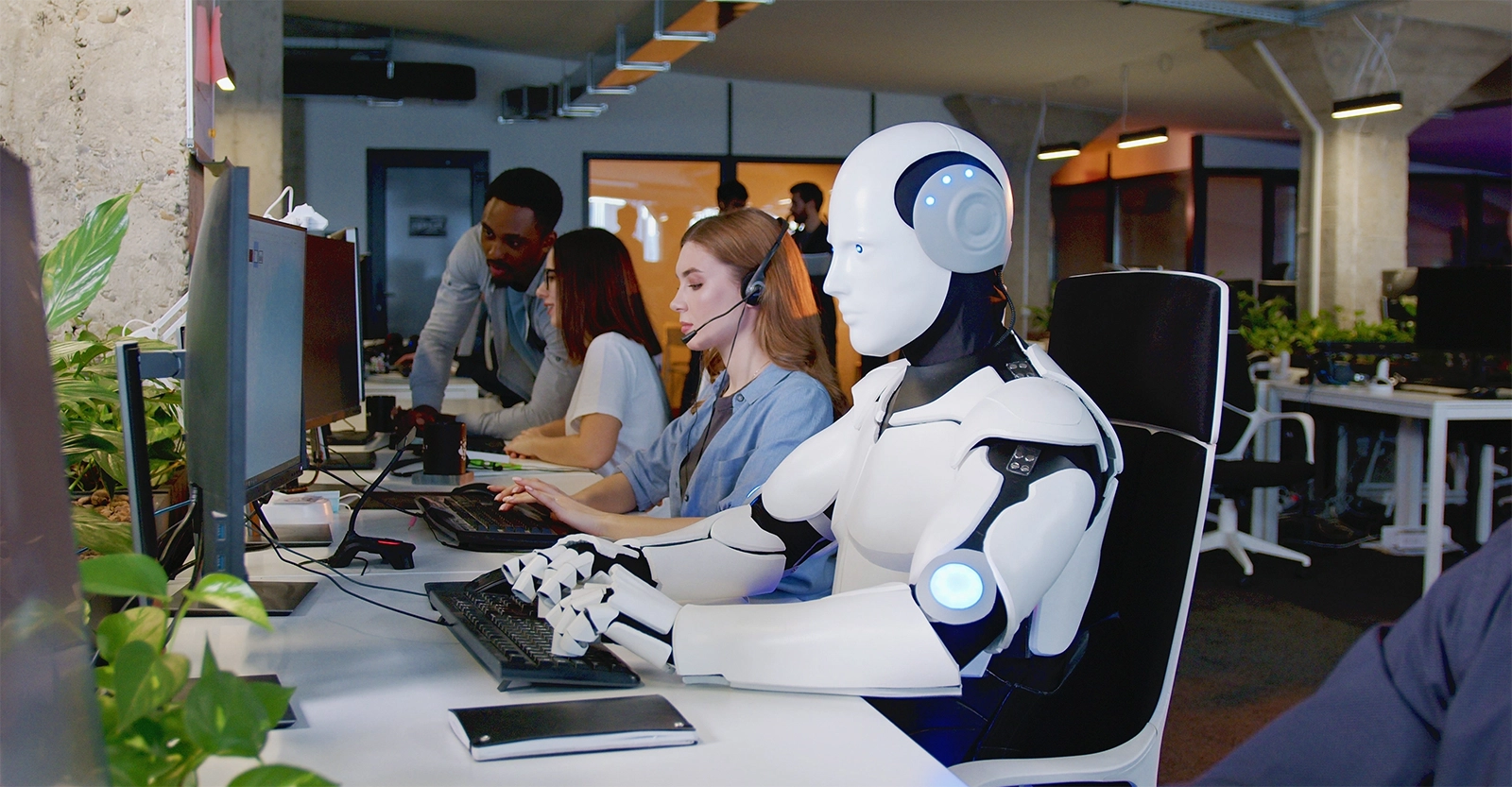
The world of work is on the cusp of a revolution. Artificial intelligence (AI) and automation are transforming industries and jobs at an unprecedented rate, leaving many to wonder what the future of work will look like. While some predict a dystopian future where machines replace humans, others see a future where AI and automation augment human capabilities, freeing us up to focus on more creative and strategic work.
In this blog post, we'll explore the impact of AI and automation on various industries and jobs, and discuss the benefits and challenges of adopting these technologies.
The Impact of AI and Automation on Industries and Jobs
AI and automation are already having a significant impact on various industries, including:
1. Manufacturing
Manufacturing is one of the industries most affected by automation. Robots and machines are increasingly being used to perform tasks such as assembly, welding, and inspection. While this may lead to job losses in some areas, it also creates new opportunities for workers in fields such as robotics engineering and maintenance.
2. Transportation
The transportation industry is also undergoing significant changes with the advent of autonomous vehicles. Self-driving cars and trucks promise to improve safety, reduce traffic congestion, and increase efficiency. However, they also threaten the livelihoods of human drivers.
3. Customer Service
AI-powered chatbots and virtual assistants are increasingly being used to handle customer inquiries and provide support. While this may lead to job losses in some areas, it also creates new opportunities for workers in fields such as conversational AI design and development.
4. Healthcare
AI is being used in healthcare to analyze medical images, diagnose diseases, and develop personalized treatment plans. While this may lead to job losses in some areas, it also creates new opportunities for workers in fields such as medical informatics and health data analysis.
5. Education
AI is being used in education to develop personalized learning plans, grade assignments, and provide feedback. While this may lead to job losses in some areas, it also creates new opportunities for workers in fields such as educational technology and instructional design.
The Benefits of AI and Automation
While the impact of AI and automation on jobs can be significant, there are also many benefits to adopting these technologies, including:
1. Increased Efficiency
AI and automation can help businesses increase efficiency by automating repetitive tasks, reducing errors, and improving productivity.
2. Improved Accuracy
AI and automation can help businesses improve accuracy by reducing the likelihood of human error and providing more precise results.
3. Enhanced Customer Experience
AI and automation can help businesses enhance the customer experience by providing 24/7 support, personalized recommendations, and faster response times.
4. New Job Opportunities
While AI and automation may lead to job losses in some areas, they also create new opportunities for workers in fields such as AI development, deployment, and maintenance.
5. Increased Competitiveness
Businesses that adopt AI and automation can gain a competitive edge by improving efficiency, accuracy, and customer experience.
The Challenges of AI and Automation
While the benefits of AI and automation are significant, there are also many challenges to adopting these technologies, including:
1. Job Displacement
AI and automation may lead to job losses in some areas, particularly in industries where tasks are repetitive or can be easily automated.
2. Skills Gap
The increasing demand for AI and automation skills may lead to a skills gap, where workers lack the necessary skills to work with these technologies.
3. Bias and Fairness
AI and automation can perpetuate bias and unfairness if they are not designed and deployed with fairness and transparency in mind.
4. Cybersecurity
AI and automation can increase the risk of cybersecurity threats if they are not properly secured.
5. Regulatory Frameworks
The lack of regulatory frameworks for AI and automation can create uncertainty and confusion for businesses and workers.
Conclusion
The future of work is uncertain, but one thing is clear: AI and automation will continue to transform industries and jobs. While there are many benefits to adopting these technologies, there are also many challenges to be addressed. By understanding the impact of AI and automation on various industries and jobs, and by developing strategies to address the benefits and challenges, we can create a future of work that is more efficient, accurate, and equitable for all.
Recommendations
1. Upskill and Reskill
Workers should upskill and reskill to work with AI and automation technologies.
2. Develop Fair and Transparent AI
Businesses should develop fair and transparent AI that does not perpetuate bias and unfairness.
3. Invest in Cybersecurity
Businesses should invest in cybersecurity to protect against threats.
4. Develop Regulatory Frameworks
Governments should develop
